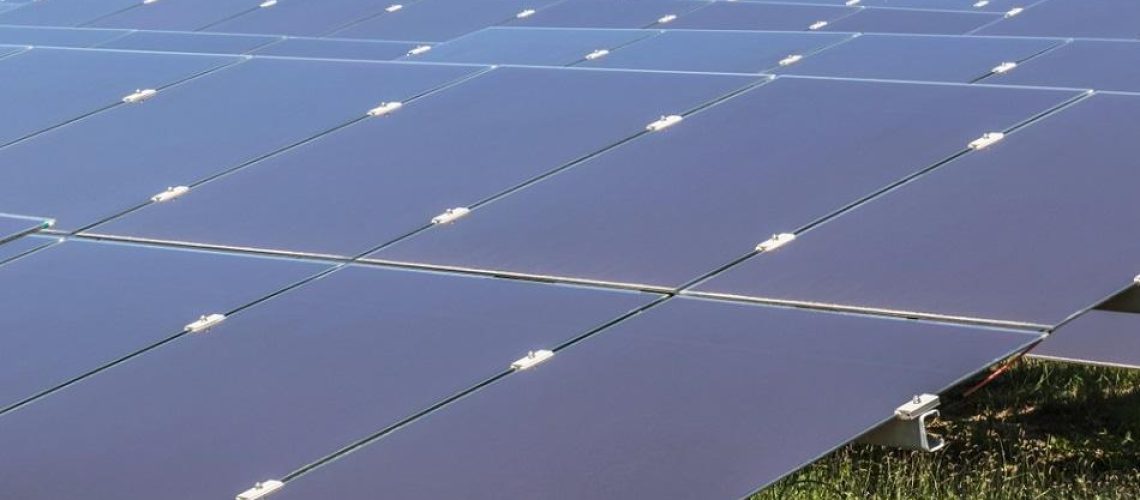The Cadmium Telluride Accelerator Consortium will work toward making continued cost and efficiency improvements that will make CdTe more competitive on the global market.
US Department of Energy (DOE) is launching the Cadmium Telluride Accelerator Consortium, a $20 million initiative designed to make cadmium telluride (CdTe) solar cells less expensive, more efficient and develop new markets for solar cell products.
CdTe solar cells were first developed in the United States and make up about 20% of the market for solar modules. The Consortium intends to to spur technological advancements in CdTe manufacturing that will help increase America’s competitiveness, bolster domestic innovation, and support clean electricity deployment supporting President Biden’s goal of achieving a net-zero economy by 2050.
“As solar continues its reign as one of the cheapest forms of energy powering our homes and businesses, we are committed to a solar future that is built by American workers,” said U.S. Secretary of Energy Jennifer M. Granholm. “DOE is proud to partner with leading solar researchers and companies to chart the future of CdTe technology, which presents an immense opportunity for domestic manufacturers to help ensure our nation’s security while providing family-sustaining jobs.”
First Solar and Toledo Solar are two Ohio-based manufacturers of CdTe solar modules. Aaron Bates, the founder of Toledo Solar, told pv magazine usa that the technology has grown from a small fraction of solar projects to the dominant source of modules in utility-scale projects. And with the utility-scale sector making up 55% of solar installs in the US, CdTe is well established in the clean energy industry. According to Bates, there are many reasons to support CdTe and US-made solar, including technological advantages, bankability, recyclability, supply chain stability, improved labor practices, and more.
“To move America forward, we need an all-of-the-above strategy that propels our energy independence, lowers costs, and creates good-paying jobs. Northern Ohio has already revolutionized the field of solar technology,” said US Representative Marcy Kaptur (OH-09). Now, through this remarkable partnership between the US Department of Energy, the University of Toledo, and First Solar – our region will become a hub of next-generation energy innovation that is built right here at home by Ohio’s workers.”
The consortium will be led by the University of Toledo, First Solar, Colorado State University, Toledo Solar Inc., and Sivananthan Laboratories, Inc. Toledo, Ohio is a hub of CdTe manufacturing due to the CdTe research taking place at the University of Toledo’s Wright Center for Photovoltaic Innovation and Commercialization, and it’s fitting that the University of Toledo will help lead the Consortium.
“Our world requires scientific innovation to address the inefficient ways we find, produce and consume energy,” said University of Toledo President Dr. Gregory Postel. “The University of Toledo is proud to help power the future by leading this consortium that leverages our expertise in solar energy research and commercialization and strengthens our partnership with the U.S. Department of Energy and other leaders in this important and growing field.”
The Cadmium Telluride Accelerator Consortium will work toward making continued cost and efficiency improvements that will make CdTe more competitive on the global market. The team’s research plan that includes CdTe doping strategies, characterizing and exploring new CdTe contacting materials, and working to enable a bifacial CdTe module that absorbs light from the front and back of the module. DOE’s National Renewable Energy Laboratory (NREL) will administer the Consortium, whose leaders were chosen through a competitive solicitation last year.
NREL will serve as a resource, support, and technical analysis center as the consortium develops a technology roadmap, conducts research to meet targets set within the roadmap, and regularly assesses the domestic CdTe supply chain for challenges and opportunities. The consortium aims to expand domestic CdTe photovoltaic material and module production, support the domestic CdTe supply chain, and enhance US competitiveness.



